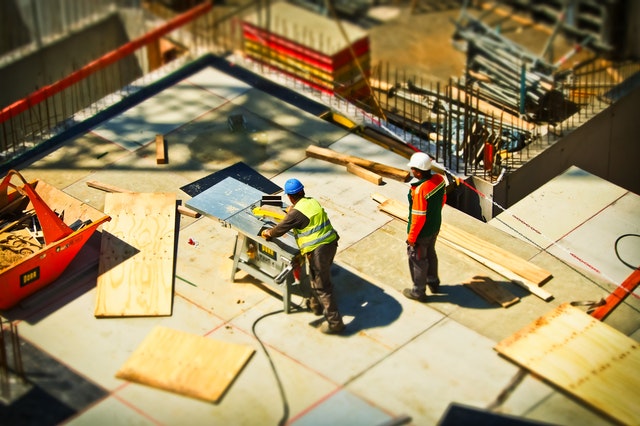Few people enjoy rolling out of bed on Monday morning and heading to work after a relaxing weekend. For some in El Paso, doing so can be downright dangerous. Certain occupations are hazardous to your hearing—but you can take preventive steps to ensure your safety.
The Dangers of Noise in the Workplace

It’s estimated that 22 million employees in Texas and across the U.S. are exposed to dangerous noise levels every year. Noise is a leading cause of hearing loss in El Paso regardless of your career. There are two ways in which you can sustain permanent hearing damage:
- Single exposure to an extremely loud sound. It takes just a split second for irreversible hearing loss to occur when you are exposed to an extremely loud sound, such as a gunshot or explosion.
- Repeated exposure to loud sounds. The cumulative effects of noise also take their toll. If you repeatedly listen to music through your earbuds at maximum volume, over time you are going to notice a decline in hearing.
85 decibels (dB) is considered the threshold for safe noise exposure. At that volume, permanent damage can occur after eight hours. For every additional 3 dB, your safe exposure time is cut in half. This means at 100 dB, hearing damage will occur in as little as 15 minutes.
If you’re attending a noisy event, such as a concert or football game, you can always wear earplugs to protect your hearing. But in some workplaces, you aren’t afforded that luxury. The following jobs are all potentially hazardous to your hearing.
- Manufacturing. Factory workers have the single greatest risk of developing occupational hearing loss. Noisy machinery and equipment are commonplace in manufacturing facilities.
- Musicians. If you’re going to be banging on a drum all day, obviously you’ll have a higher risk of hearing impairment. You don’t have to play in a heavy metal band to feel the effects; even violinists are exposed to excess noise levels on a regular basis.
- Farmers. A swift kick to the head while milking a cow isn’t the only hazard farmers face. Tractors and other farm equipment are noisy, which explains why nearly 75 percent of farmers suffer from hearing impairment as they get older.
- Construction workers. The tools and equipment found on many construction sites are noisy. Jackhammers, power saws, air guns, welding equipment, even hammers and nails can all damage your hearing.
- Stadium employees. Those who work in stadiums, arenas and other entertainment venues must contend with often-raucous fans. It’s even worse when the complex has a closed roof or dome.
- Dental workers. Believe it or not, the noise from dental drills can take a toll on high-frequency hearing—especially when the dentist or assistant is leaning in close to perform the work.
- Coaches and referees. Starting guns, whistles, loud crowd noise—all effect those on the playing field.
- Teachers. The noblest of professions can also be the noisiest of professions, especially for elementary school teachers, who must contend with rambunctious children—especially at recess and lunchtime.
The Occupational Safety and Health Administration (OSHA) mandates that employers take steps to protect their workers’ hearing, but compliance levels aren’t always what they should be. You can proactively take steps to protect your hearing by wearing earplugs or earmuffs when needed, taking breaks from noisy work to give your ears a rest and scheduling regular appointments with an El Paso audiologist to monitor your hearing and come up with treatment solutions if needed.